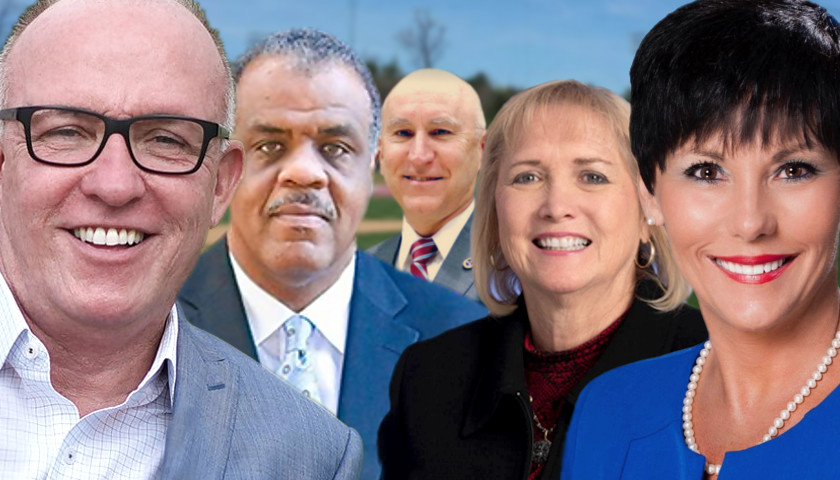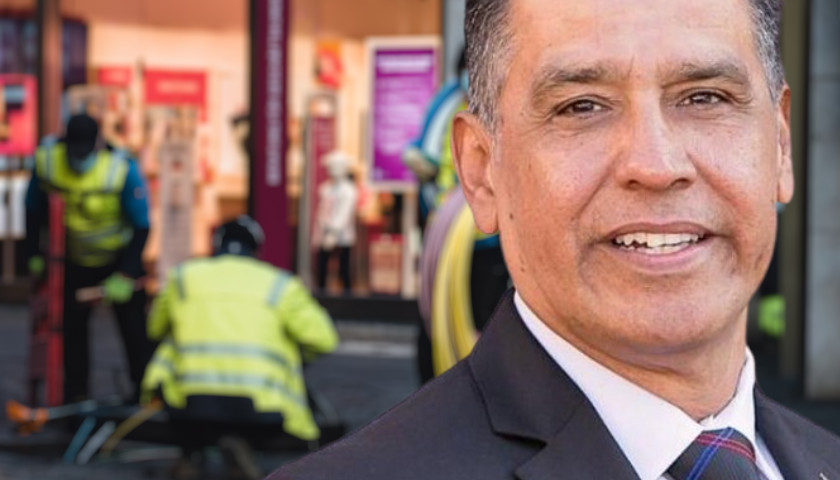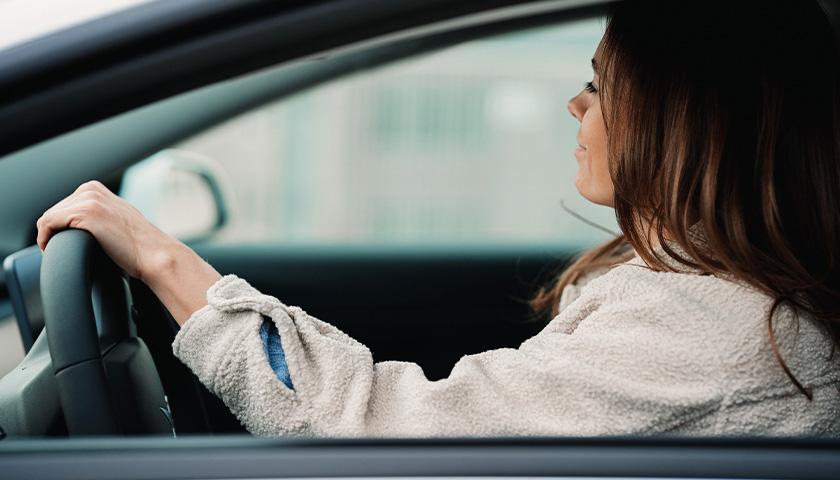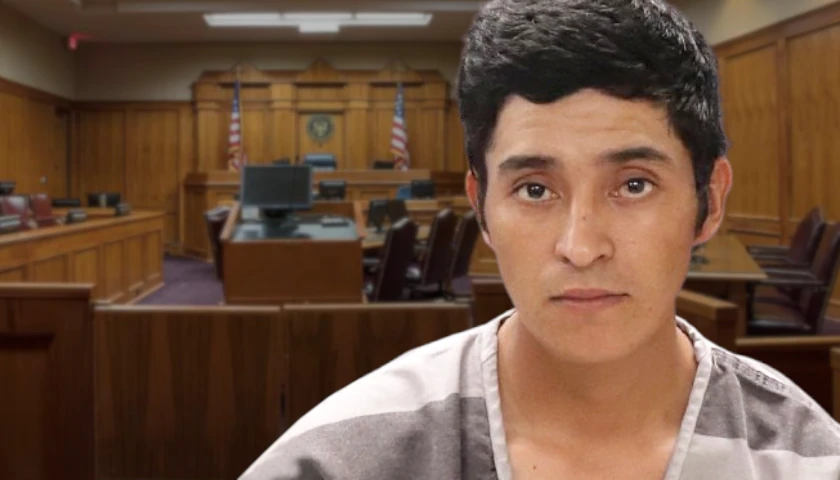Five of the eight sponsors of the bill that will enable a taxpayer-funded stadium for Randy Boyd’s minor league baseball stadium in Knoxville received a total exceeding $90,000 in campaign contributions from several individuals involved with the proposed project.
All but one of the legislators are from the Knoxville area and all but one are Republicans while three are freshmen.
The sponsors of SB 0783 are Senators Becky Duncan Massey (R-Knoxville) and Richard Briggs (R-Knoxville).
Sponsors of the companion HB 1204 are Representatives Jason Zachary (R-Knoxville), Eddie Mannis (R-Knoxville), Dave Wright (R-Corryton, Part of Knox County), Michelle Carringer (Knoxville), Ryan Williams (R-Cookeville), and Sam McKenzie (D-Knoxville).
Background
Boyd is the owner of the Tennessee Smokies minor league baseball team, which currently plays at Smokies Park in Sevier County. The team, previously known as the Knox Sox and owned by the Haslam family until 2013, moved from Knoxville in 2000.
Boyd’s contract with the Smokies Park expires at the end of 2024, Smokies President Chris Allen told The Ledger.
Boyd is currently executive chairman of Radio Systems Corporation, the company he founded that includes the PetSafe and Invisible Fence brands and reportedly had annual sales in 2016 of $370 million before he sold the company in 2020.
In his public life, Boyd served as Commissioner of Economic and Community Development under then-Governor Bill Haslam, before making a run at the office himself in the 2018 Republican gubernatorial primary.
Boyd is currently President of the University of Tennessee system.
He and his wife own multiple properties in Knoxville, and speculation about Boyd moving his Smokies back to Knoxville goes back at least five years, when he acquired seven acres of land for $6 million in Knoxville’s Old City, as Ballpark Digest reported.
That speculation became reality when, in August 2020, Boyd proposed a multi-use development in the Old City that, fashioned after Chicago’s Wrigley Field, will include apartment and community space around the ballpark stadium.
While the 630,000 square-foot mixed use space would be privately funded with Boyd raising the necessary $142 million from private sources, he wants the ballpark to be taxpayer funded.
The estimated cost to taxpayers – $65 million, plus a 20 percent contingency for a total of $78 million, not including the interest payments of $4 million annually for bonds issued to fund the ballpark.
A first step to the baseball park portion of the project was the establishment of a sports authority by the City of Knoxville and Knox County. Both legislative bodies took up the matter at separate meetings in late December, where the measure passed.
The next step is the redistribution of the state and local sales tax revenue collected within one-quarter mile of the center point of the stadium to the newly-formed sports authority in order to pay off the publicly-funded debt for the stadium.
That step would be accomplished through HB 1204 / SB 0783 that is being put before the state legislature by two Senate and six House members.
According to city and county staff, the sales tax redirected from the surrounding restaurants and stores would cover just 30 percent of construction costs, WBIR reported.
Stadium-Benefiting Campaign Financiers
The legislative sponsors receiving campaign contributions got them from many of the same stadium-benefiting individuals, according to publicly available campaign finance records from the state and Knox County.
The ties to Boyd’s ballpark stadium by campaign financiers’, often including their spouses, are also publicly available through various and multiple media reports.
In addition to hefty contributions from Smokies owner Boyd and his wife, campaign funding came from these individuals, listed with their company and their connection to Boyd or his proposed ballpark stadium.
Mark Mamantov (and wife) of Bass, Berry & Sims, a bond attorney who also has involvement in the creation and development of the sports authority.
Michael Hatcher (and wife) and Timothy Hill of Hatcher-Hill Properties which invested in the area in anticipation of the baseball stadium being constructed.
Raja Jubran (and wife), CEO of Denark Construction, which did the demolition and clean-up work on Boyd’s property.
Frank Rothermel (and wife), President of Denark Construction.
Grant Rosenberg, Vice President of Denark Construction.
Nadim Jubran (and wife), who is a co-owner of the United Soccer League team that is in talks with Boyd about using the taxpayer-funded stadium for their games.
Rodney Lawler owner of LawlerWood, a development company, and funder of Cornerstone Foundation which did initial site planning and preliminary talks with city officials about moving the Tennessee Smokes to Knoxville.
David Martin (and wife), Investment Manager with Cornerstone Foundation.
Randall Gibson (and wife), CEO of LawlerWood.
Alvin Nance, CEO of LawlerWood.
Cynthia Moxley, owner of Moxley Carmichael, the public relations firm for Boyd Sports that did the renderings for the proposed development.
James Carmichael, owner of Moxley Carmichael.
Donald Parnell, a realtor who helped Boyd purchase properties.
Tom Boyd, BioPet Laboratories, father of Randy Boyd.
Legislator Campaign Fund Recipients
Sen. Becky Duncan Massey of the five-decade Duncan Congressional dynasty is the primary Senate sponsor of SB 0783.
Entering her 11th year in the Tennessee Senate, Massey is the longest tenured lawmaker sponsoring the legislation. Over the years, Massey has collected $18,350 from stadium beneficiaries.
Randy Boyd and wife, Tennessee Smokies – $6,000
Tom Boyd, Biopet Laboratories – $1,000
James Carmichael, Moxley Carmichael – $500
Wife of Randall Gibson, LawlerWood – $1,000
Raja Jubran, Denark Construction – $4,000
Rodney Lawler, LawlerWood – $1,250
Mark Mamantov and wife, Bass, Berry & Sims – $1,600
David Martin, Cornerstone Foundation – $1,500
Cynthia Moxley, Moxley Carmichael – $1,500
Massey had no opponent in the August 2020 primaries, and won the general election handily with 63 percent of the vote against her Democratic challenger.
The campaign contributions to Massey from these individuals stepped up in terms of both the number and dollar value with more than a third of the total being paid out in 2019.
Sen. Richard Briggs, the only co-prime sponsor of the legislation in the Senate, has been in office since 2014, is up for re-election in 2022 and has received $23,750 in from stadium beneficiaries since his first election.
Randy Boyd and wife, Tennessee Smokies – $12,000
Bruce Foster, Bass, Berry & Sims – $150
Raja Jubran and wife, Denark Construction – $7,500
Mark Mamantov, Bass, Berry & Sims – $1,100
Cynthia Moxley, Moxley Carmichael – $1,000
Frank Rothermel, Denark Construction – $2,000
Freshman Rep. Michele Carringer received $2,750 from the stadium beneficiaries for her 2020 run to replace retiring long-time Rep. Bill Dunn (R-Knoxville).
Mike Hatcher, Hatcher Hill Properties – $500
Raja Jubran, Denark Construction – $1,000
Mark Mamantov, Bass, Berry & Sims – $500
David Martin, Cornerstone Foundation – $500
Grant Rosenberg, Denark Construction – $250
Fellow freshman Rep. Eddie Mannis, who was only able to run in the Republican primary for House District 18 after voting on a Democrat ballot for the 2020 Presidential preference primary due to vouching as to his bona fide status by fellow taxpayer-funded stadium supporters Sen. Briggs and Knox County Mayor Glenn Jacobs along with Congressman Tim Burchett (R-TN-02).
Mannis was by far the biggest beneficiary of campaign funding from stadium beneficiaries, netting $46,625 between his failed bid in 2019 for Knoxville Mayor and then his run in 2020 as State Representative.
Randy Boyd and wife, Tennessee Smokies – $7,900
Tom Boyd, BioPet Laboratories – $1,600
Raja Jubran and wife, Denark Construction – $10,800
Nadim Jubran and wife, United Soccer Team – $7,000
Mark Mamantov and wife, Bass, Berry & Sims – $1,300
Rodney Lawler, LawlerWood – $2,600
David Martin and wife, Cornerstone Foundation – $3,700
James Carmichael, Moxley Carmichael – $500
Michael Hatcher and wife, Hatcher-Hill – $2,000
Timothy Hill, Hatcher-Hill – $1,500 $500
Frank Rothermel and wife, Denark Construction – $2,600
Grant Rosenberg, Denark Construction – $200
Cynthia Moxley, Moxley Carmichael – $1,600
Randall Gibson and wife, LawlerWood – $1,000
Donald Parnell, realtor – $225
Alvin Nance, LawlerWood – $2,100
It would seem that the stadium beneficiaries’ campaign contributions are not political party aligned, since there were two Democrats that also received contributions, albeit smaller in quantity and dollars.
Democratic freshman Rep. Sam McKenzie received a total of $750 for his run for State House.
Mark Mamantov, Bass, Berry & Sims – $250
Cynthia Moxley, Moxley Carmichael – $500
McKenzie’s wife, Gwen, who is City of Knoxville’s Vice Mayor received $600 from stadium-beneficiary contributors.
Timothy Hill, Hatcher-Hill – $500
Cynthia Moxley, Moxley Carmichael – $100
Vice Mayor McKenzie in December proposed a resolution in response to the death of George Floyd that would have the city apologize and make amends for urban renewal – or more recently referred to as urban “removal” – projects that impacted the Black community.
When Knoxville’s City Council took up the resolution committing to a $100 million funding plan, it went on to be passed unanimously but not without questions about the details. In a Nancy Pelosi-like response, McKenzie said the remaining issues in carrying out the resolution are semantics and would be figured out in the coming days and weeks, Knox News reported.
There is no indication on the state’s campaign finance website that Representatives Zachary, Williams or Wright received any campaign contributions from the stadium beneficiaries.
SB 0783 has been referred to the Senate State and Local Government Committee.
Meanwhile, HB 1204 is not scheduled for review by the House State or Local Government committees, but has been assigned directly to the Finance, Ways and Means Subcommittee.
The bills have not yet been scheduled on a calendar for either the Senate or House committee.
—
Laura Baigert is a senior reporter at The Tennessee Star.
Headline photo left-to-right: State Rep Eddie Mannis (R-Knoxville), State Rep Sam McKenzie (D-Knoxville), State Senator Richard Briggs (R-Knoxville), State Senator Becky Duncan Massey, State Rep Michelle Carringer (Knoxville). /Facebook






No wonder the establishment and several elected office holders fought so hard to get Democrat Eddie Mannis on the 2020 Republican ballot…$46,652 spent by these and other elitists to fund the Mannis campaign ensures his vote against taxpayers, and a vote for the wealthy owner of five minor league baseball teams in Tennessee. Randy Boyd somehow cannot afford to build his own ballpark, but set a new Tennessee political campaign record for self-financing his 2018 failed race for governor in giving his campaign more than $6.1 million in direct contributions, not loans. This proposed stadium is the epitome of corporate welfare.
If it was a good deal they wouldn’t need taxpayer money. These guys never leave money on the table.
The good news for the State and Knoxville/Knox County are that this will not affect the sales tax revenues that any of them receive.
They receive no sales and use tax revenues from the property now, nor will they for quite a while in the future.
The City of Knoxville is stuck with the balance of the city portion of the project funding, which is a decision of the Knoxville City Council – not the General Assembly.
It’s ironic that a writer from Nashville would be shocked at public financing of sports facilities.
Perhaps she needs to read up on the funding of Nissan Field and Bridgestone Arena.
Better yet, perhaps she will come to Knoxville and walk the perimeter of the area, which is currently blighted and drug and crime-ridden.
The Haslam “Good Ole Boys” at work again. We finally got rid of Lamar Alexander, only to have Randy Boyd replace him in the line up.
As they say – Nothing is new under the sun. Just more political graft and payoffs.
It never stops.
Follow the money, that’s what politics is all about.
Hey, did I read this correctly “Nadim Jubran (and wife), who is a co-owner of the United Soccer League team that is in talks with Boyd about using the taxpayer-funded stadium for their games”?
How come in Knoxville a baseball stadium can be used for soccer, but in Nashville, we were told that a football (American version) stadium can’t be used for football (soccer)! Hmmm?
Oh, that’s right, it’s all part of the con game used by the “establishment” to get what they want, and have us taxpayers pay for it!
Knox County should not use taxpayer funds to pay for a baseball park. I did not vote for Michele Carringer to sponsor a bill of this nature. If she thinks this is a valuable project she can donate her personal funds.
Fleecing taxpayers one nickel at a time. Aided by deep pocketed people who are financially enriched off of those same tax dollars. Is it any wonder the American public are fed up?